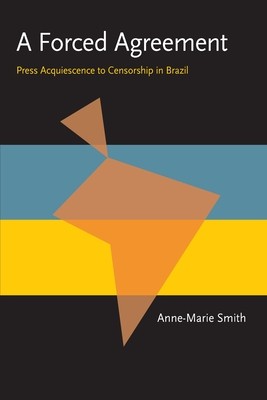
- We will send in 10–14 business days.
- Author: Anne-Marie Smith
- Publisher: University of Pittsburgh Press
- ISBN-10: 0822956217
- ISBN-13: 9780822956211
- Format: 15.2 x 22.9 x 1.4 cm, softcover
- Language: English
- SAVE -10% with code: EXTRA
Reviews
Description
During much of the military regime in Brazil (1964-1985), an elaborate but illegal system of restrictions prevented the press from covering important news or criticizing the government. In this intriguing new book, Anne-Marie Smith investigates why the press acquiesced to this system, and why this state-administered system of restrictions was known as "self-censorship."
Smith argues that it was routine, rather than fear, that kept the lid on Brazil's press. The banality of state censorship-a mundane, encompassing set of automatically repeated procedures that functioned much like any other state bureaucracy-seemed impossible to circumvent. While the press did not consider the censorship legitimate, they were never able to develop the resources to overcome censorship's burdensome routines.
EXTRA 10 % discount with code: EXTRA
The promotion ends in 20d.15:14:24
The discount code is valid when purchasing from 10 €. Discounts do not stack.
- Author: Anne-Marie Smith
- Publisher: University of Pittsburgh Press
- ISBN-10: 0822956217
- ISBN-13: 9780822956211
- Format: 15.2 x 22.9 x 1.4 cm, softcover
- Language: English English
During much of the military regime in Brazil (1964-1985), an elaborate but illegal system of restrictions prevented the press from covering important news or criticizing the government. In this intriguing new book, Anne-Marie Smith investigates why the press acquiesced to this system, and why this state-administered system of restrictions was known as "self-censorship."
Smith argues that it was routine, rather than fear, that kept the lid on Brazil's press. The banality of state censorship-a mundane, encompassing set of automatically repeated procedures that functioned much like any other state bureaucracy-seemed impossible to circumvent. While the press did not consider the censorship legitimate, they were never able to develop the resources to overcome censorship's burdensome routines.


Reviews